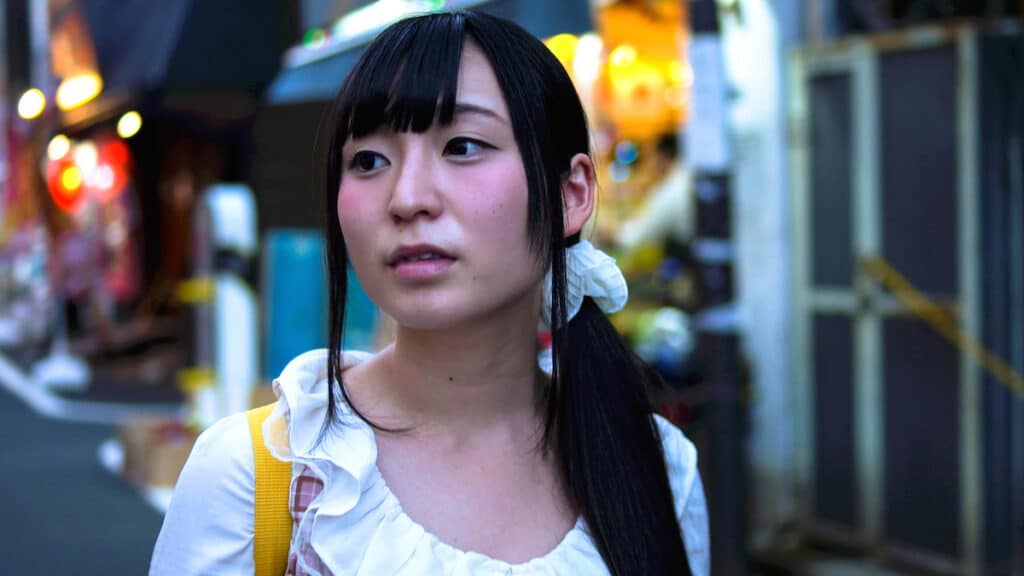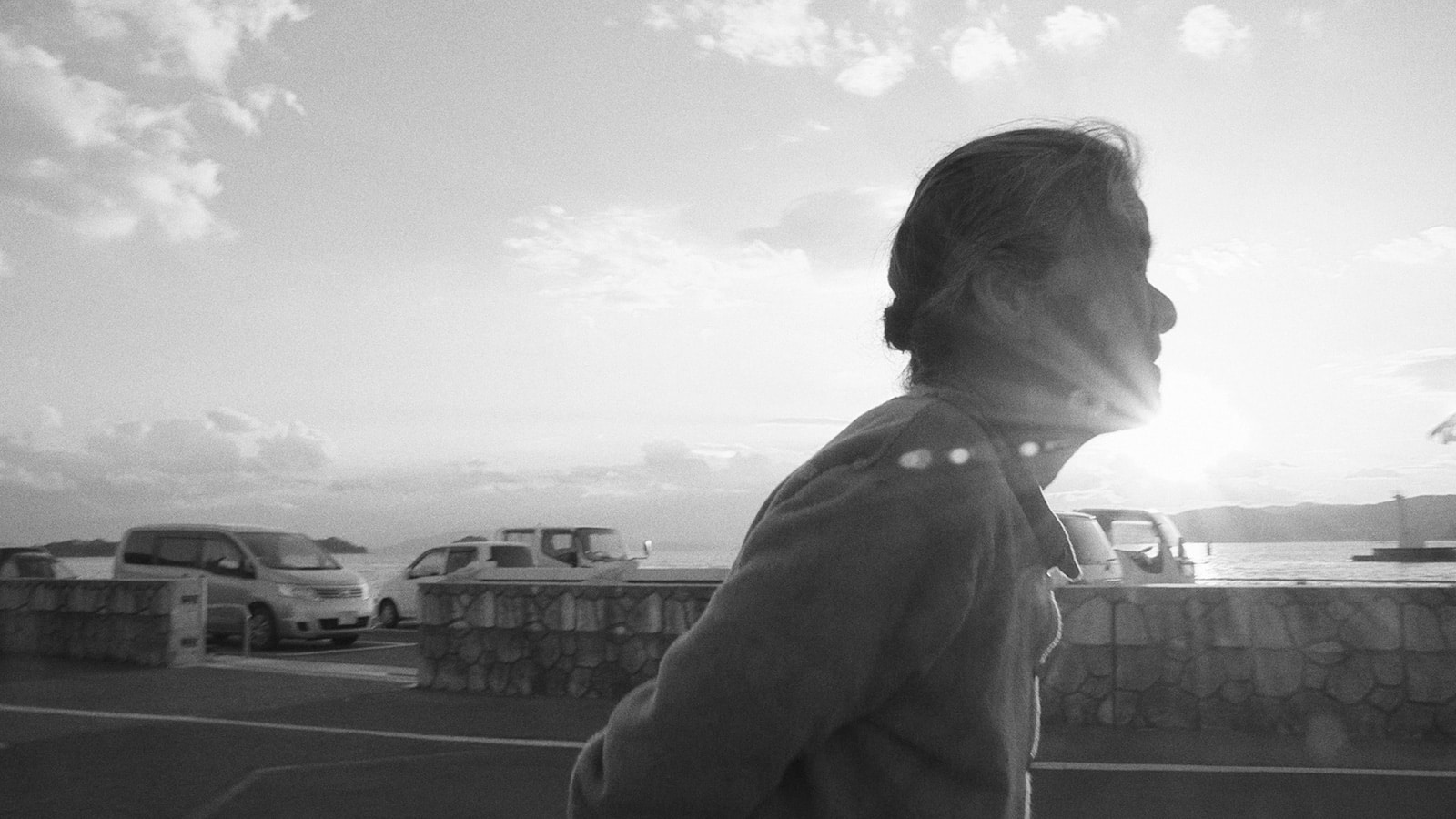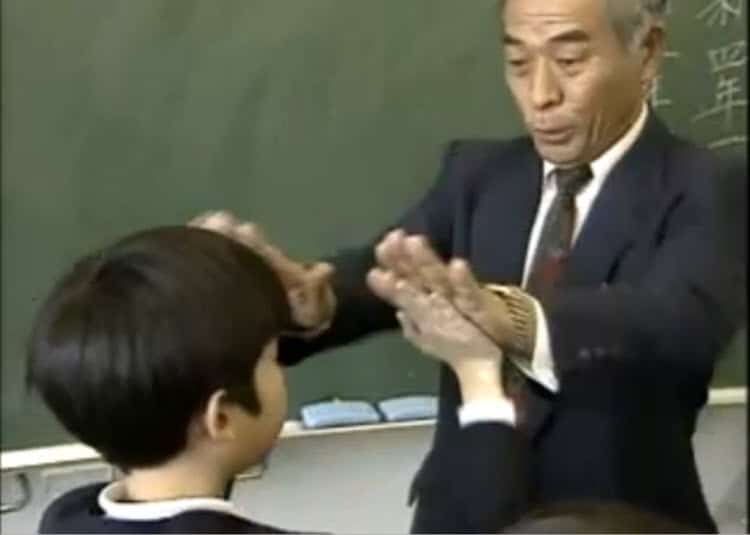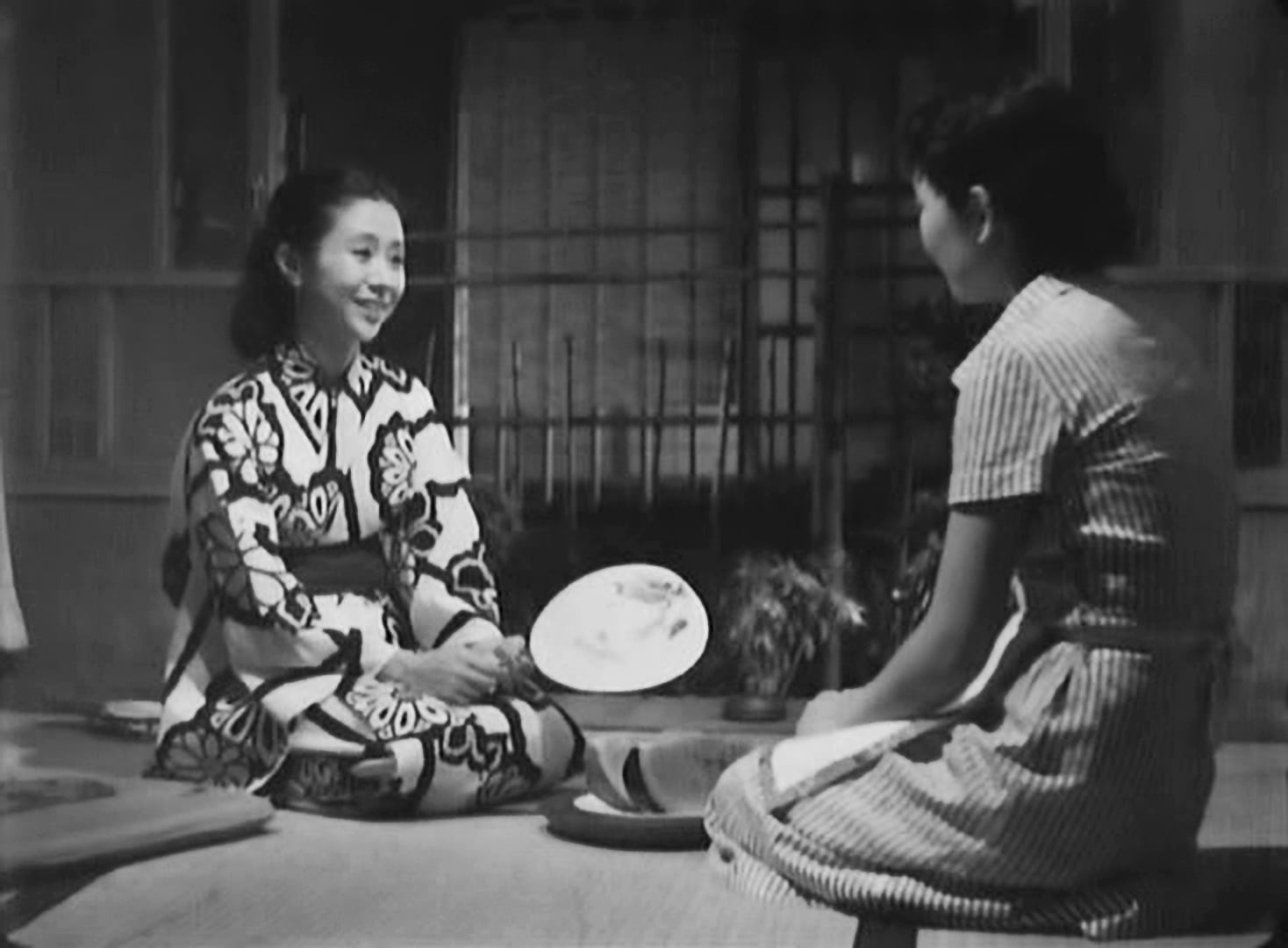
12 Japanese Documentaries to Learn About Japanese Culture and History
From ancient traditions to modern societal issues, Japanese documentaries are full of culture and insight.
Learn about Japan, Japanese history and culture through these Japanese-language documentaries.
Check out Japan’s rich documentary filmmaking scene, with 12 terrific films!
Contents
- “Sing, Dance, Act: Kabuki” (2022)
- “Inland Sea” (2018)
- “Little Miss Sumo” (2018)
- “Tokyo Idols” (2017)
- “Never-Ending Man: Hayao Miyazaki” (2016)
- “The Birth of Sake” (2015)
- “Hafu: The Mixed-Race Experience in Japan” (2013)
- “Jiro Dreams of Sushi” (2011)
- “Children Full of Life” (2003)
- “The Emperor’s Naked Army Marches On” (1987)
- “Tokyo Olympiad” (1965)
- “Children of Hiroshima” (1952)
- And One More Thing...
Download: This blog post is available as a convenient and portable PDF that you can take anywhere. Click here to get a copy. (Download)
“Sing, Dance, Act: Kabuki” (2022)
Director: Tadashi Aizawa
Topic: Art
IMDB rating: 6.9
Rotten Tomatoes rating: 100%
Watch it on: Netflix
This documentary centers around the traditional Japanese performing art Kabuki, which was designated as an intangible cultural heritage by UNESCO. It explores the art form’s history and unique elements like dramatic poses and elaborate costumes, showcasing both classic and “New Kabuki” plays.
The film follows actor Toma Ikuta as he trains for his debut in a New Kabuki production. You’ll see the dedication and challenges he faces while learning this demanding art form. “Sing, Dance, Act: Kabuki” offers a glimpse into the rehearsals and preparations leading up to a Kabuki performance.
“Inland Sea” (2018)
Director: Kazuhiro Soda
Topic: Society
IMDB rating: 7.4
Rotten Tomatoes rating: N/A
Watch it on: DA Films
“Inland Sea” follows the daily lives of elderly residents in a small Japanese fishing village called Ushimado. The film provides a meditative look at the community’s struggles with aging, depopulation and the decline of traditional industries like fishing. Through its minimalist approach and black-and-white aesthetic, “Inland Sea” captures the beauty and melancholy of rural life, offering a poignant reflection on the passage of time and the resilience of the human spirit amidst change.
“Little Miss Sumo” (2018)
Director: Matt Kay
Topic: Sport
IMDB rating: 6.5
Rotten Tomatoes rating: 77%
Watch it on: Netflix
This short documentary film explores the story of Hiyori Kon, a young female sumo wrestler from Japan, who challenges traditional gender norms and fights for the right to compete in sumo wrestling tournaments. In Japan, women are generally not allowed to participate in professional sumo wrestling, but Hiyori dreams of breaking this barrier and becoming a professional sumo wrestler.
“Little Miss Sumo” follows Hiyori’s journey as she trains rigorously and confronts societal prejudices in her quest to pursue her passion for sumo wrestling. The documentary sheds light on issues of gender inequality in the world of sports and celebrates Hiyori’s determination and courage in challenging cultural stereotypes.
“Tokyo Idols” (2017)
Director: Kyoko Miyake
Topic: Music
IMDB rating: 6.9
Rotten Tomatoes rating: 91%
Watch it on: Apple TV
“Tokyo Idols” explores the phenomenon of “idols” in Japanese pop culture, particularly focusing on the relationship between female idols and their predominantly male fan base. It delves into the world of idol fandom, where young female performers, known as idols, strive for fame and success by cultivating a dedicated following of fans, often through live performances and personal interactions.
The documentary follows the lives of several aspiring idols, as well as their fans, offering insight into the dynamics of the idol industry. It examines the commercialization of youth and femininity in Japanese society, as well as the societal issues surrounding loneliness and alienation, which drive some fans to seek solace and companionship in their devotion to idols.
“Never-Ending Man: Hayao Miyazaki” (2016)
Director: Kaku Arakawa
Topic: Biography
IMDB rating: 6.8
Rotten Tomatoes rating: 100%
Watch it on: Amazon, Max, YouTube
This documentary follows the renowned Japanese animator Hayao Miyazaki, known for his work with Studio Ghibli, as he comes out of retirement to work on a new animated short film using computer-generated imagery (CGI) technology. The film provides an intimate look at Miyazaki’s creative process, his struggles with adapting to new technologies and his unwavering dedication to storytelling and artistic expression.
If you’re a Studio Ghibli film, you’ll also enjoy the contemplative 2013 documentary, “The Kingdom of Dreams and Madness” (2013). This movie takes a closer look inside Studio Ghibli and its inner workings, shedding some light on how it operates and the studio’s founders, Hayao Miyazaki and Isao Takahata.
“The Birth of Sake” (2015)
Director: Erik Shirai
Topic: Society
IMDB rating: 7.2
Rotten Tomatoes rating: 82%
Watch it on: Amazon, Apple TV, Tubi, YouTube
“The Birth of Sake” provides an in-depth look at the traditional sake-making process in Japan, focusing on the Tedorigawa Brewery located in Ishikawa Prefecture. The documentary follows the brewery workers, known as toji, as they go through the arduous and labor-intensive process of brewing sake over the course of six months.
The movie offers viewers a rare glimpse into the craftsmanship and dedication required to produce high-quality sake, highlighting the meticulous attention to detail and the symbiotic relationship between tradition and innovation in sake production. The film also explores the personal lives of the toji and the unique challenges they face in preserving their craft in the modern world.
“Hafu: The Mixed-Race Experience in Japan” (2013)
Director: Megumi Nishikura, Lara Perez Takagi
Topic: Society
IMDB rating: 7.1
Rotten Tomatoes rating: N/A
Watch it on: Amazon
The term “hafu” in Japanese refers to individuals who are biracial or of mixed-race heritage, particularly those with one Japanese parent and one non-Japanese parent. This film looks at the experiences of hafu individuals living in Japan, examining issues such as identity, belonging and cultural assimilation. Through interviews with hafu individuals of various backgrounds as well as their families and friends, the documentary takes reveals the complexities of navigating Japanese society as a mixed-race person. It also touches on broader issues related to multiculturalism and globalization in contemporary Japan.
“Jiro Dreams of Sushi” (2011)
Director: David Gelb
Topic: Food
IMDB rating: 7.8
Rotten Tomatoes rating: 99%
Watch it on: Peacock, Tubi, Sling
This captivating documentary profiles Jiro Ono, an 85-year-old sushi master who operates a renowned sushi restaurant in Tokyo. The documentary offers an intimate and mesmerizing portrait of Jiro’s lifelong dedication to the art of sushi-making. Through stunning cinematography and intimate interviews with Jiro, his family and his apprentices, the film provides insight into the philosophy and techniques behind Jiro’s renowned sushi.
“Jiro Dreams of Sushi” also explores the complex relationship between Jiro and his two sons, particularly his eldest son, Yoshikazu, who is poised to inherit the restaurant. The film examines the pressures and expectations placed on Yoshikazu to carry on his father’s legacy while also striving to carve out his own path.
“Children Full of Life” (2003)
Director: Noboru Kaetsu
Topic: Society
IMDB rating: 8.6
Rotten Tomatoes rating: N/A
Watch it on: Films for Action
This touching film is part of the “Nonfiction W” series directed by Noboru Kaetsu. It tells the story of Toshiro Kanamori, a fourth-grade teacher at a primary school in Kanazawa, Japan, as he teaches his students valuable life lessons about empathy, compassion and emotional intelligence.
The documentary captures Kanamori’s innovative approach to education, which focuses not only on academic achievement but also on nurturing the emotional and social development of his students. Through various activities and discussions, Kanamori encourages his students to express their feelings, communicate openly with each other and develop a deeper understanding of themselves and their peers. “Children Full of Life” documents the profound impact of Kanamori’s teachings on his students as they learn to confront and overcome personal challenges, build meaningful relationships and cultivate a sense of empathy and kindness towards others.
“The Emperor’s Naked Army Marches On” (1987)
Director: Kazuo Hara
Topic: War
IMDB rating: 8.2
Rotten Tomatoes rating: 100%
Watch it on: Criterion
A deeply compelling and controversial documentary, “The Emperor’s Naked Army Marches On” follows a WWII veteran, Kenzo Okuzaki, as he relentlessly pursues justice for his fallen comrades by confronting those he believes responsible for war crimes. Through Okuzaki’s actions and revelations, the film explores broader themes of guilt, trauma and the complex legacy of war.
“The Emperor’s Naked Army Marches On” is known for its raw and unflinching portrayal of Okuzaki’s journey, as well as its exploration of Japan’s wartime past and the lingering scars it has left on its society. The film has been praised for its boldness and its ability to provoke deep reflection and debate among viewers.
“Tokyo Olympiad” (1965)
Director: Kon Ichikawa
Topic: Sport
IMDB rating: 7.8
Rotten Tomatoes rating: 100%
Watch it on: Amazon, Max, YouTube
Renowned for its innovative cinematography and artistic approach, “Tokyo Olympiad” offers a visually stunning and immersive portrayal of the 1964 Summer Olympics held in Tokyo,. Ichikawa’s film goes beyond mere sports coverage, showing a glimpse into the human drama and emotion surrounding the athletes and their performances.
Through breathtaking slow-motion sequences, dynamic editing and a powerful musical score, “Tokyo Olympiad” captures the intensity, athleticism and sheer spectacle of the Olympic competitions. It also gives viewers a snapshot of the cultural and social context of Japan during the 1960s.
“Children of Hiroshima” (1952)
Director: Kaneto Shindo
Topic: War
IMDB rating: 7.6
Rotten Tomatoes rating: 92%
Watch it on: Tubi
The film provides a powerful depiction of the aftermath of the atomic bombing of Hiroshima during World War II. It tells the story of a young schoolteacher, Takako Ishikawa, who returns to Hiroshima 10 years after the bombing to visit her family and former students.
As Takako reunites with her loved ones and encounters survivors of the bombing, the film explores the physical and emotional scars left by the devastation. Through the eyes of Takako and the people she encounters, the film portrays the resilience and courage of the survivors as they strive to rebuild their lives amidst the trauma and loss.
“Children of Hiroshima” is widely regarded as a classic of Japanese cinema and a seminal work in the genre of anti-war films. It remains a powerful testament to the enduring legacy of the Hiroshima bombing and a call for remembrance and reflection on the horrors of war.
Check out any (or all!) the Japanese documentaries in this list to learn both about the country’s culture and the language.
And One More Thing...
If you love learning Japanese with authentic materials, then I should also tell you more about FluentU.
FluentU naturally and gradually eases you into learning Japanese language and culture. You'll learn real Japanese as it's spoken in real life.
FluentU has a broad range of contemporary videos as you'll see below:

FluentU makes these native Japanese videos approachable through interactive transcripts. Tap on any word to look it up instantly.

All definitions have multiple examples, and they're written for Japanese learners like you. Tap to add words you'd like to review to a vocab list.

And FluentU has a learn mode which turns every video into a language learning lesson. You can always swipe left or right to see more examples.

The best part? FluentU keeps track of your vocabulary, and gives you extra practice with difficult words. It'll even remind you when it’s time to review what you’ve learned. You'll have a 100% personalized experience.
Start using the FluentU website on your computer or tablet or, better yet, download the FluentU app from the iTunes or Google Play store. Click here to take advantage of our current sale! (Expires at the end of this month.)





